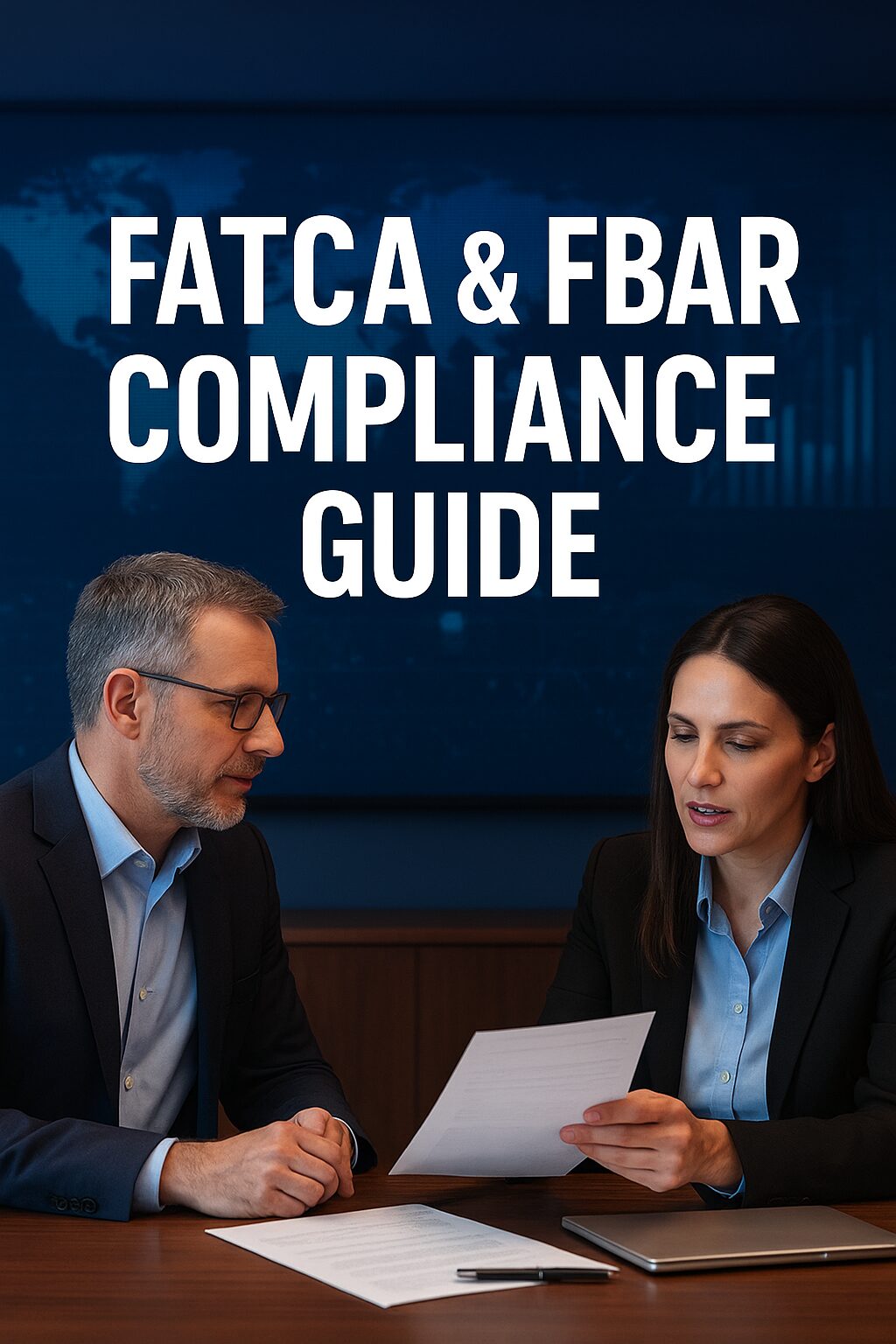Why Compliance Is Non-Negotiable
For U.S. investors holding assets overseas, compliance with FATCA (Foreign Account Tax Compliance Act) and FBAR (Foreign Bank Account Report) is critical. The penalties for failing to report foreign accounts can be severe—sometimes exceeding the account’s total value. High-net-worth individuals, in particular, are prime targets for IRS scrutiny.
This guide explains FATCA and FBAR in detail, clarifies reporting obligations, and provides a step-by-step plan to stay compliant while managing offshore investments.
Understanding FATCA – The Global Reporting Network
Enacted in 2010, FATCA requires foreign financial institutions (FFIs) to report accounts held by U.S. persons. Its goals:
- Prevent tax evasion by U.S. taxpayers with overseas assets.
- Increase transparency in global banking.
- Identify undisclosed foreign income.
Key FATCA requirements for individuals:
- Form 8938 – U.S. taxpayers must file this if they hold specified foreign financial assets above certain thresholds.
- Thresholds vary based on residency and filing status:
- Living in the U.S.: $50,000 (single) / $100,000 (married filing jointly) at year-end.
- Living abroad: $200,000 (single) / $400,000 (married filing jointly) at year-end.
Understanding FBAR – The FinCEN Reporting Obligation
FBAR is separate from FATCA but equally important. It requires reporting foreign accounts if their aggregate value exceeds $10,000 at any point during the year.
Key FBAR requirements:
- File FinCEN Form 114 electronically via the BSA E-Filing System.
- Includes bank accounts, brokerage accounts, mutual funds, and certain insurance policies.
FATCA vs. FBAR – The Key Differences
| Feature | FATCA (Form 8938) | FBAR (FinCEN Form 114) |
|---|---|---|
| Reporting Agency | IRS | Financial Crimes Enforcement Network (FinCEN) |
| Threshold | $50,000+ (U.S.) / $200,000+ (abroad) | $10,000 aggregate |
| Filing Method | With annual tax return | Separate electronic filing |
| Asset Types | Wider range of foreign assets | Financial accounts only |
Penalties for Non-Compliance
- FBAR:
- Non-willful: Up to $10,000 per violation.
- Willful: Greater of $100,000 or 50% of account balance per year.
- FATCA:
- $10,000 failure-to-file penalty.
- Additional $50,000 for continued failure after IRS notice.
- 40% penalty on understatement of tax attributable to non-disclosed assets.
Strategies to Stay Compliant
1. Maintain Detailed Records
Track account balances, transaction history, and asset valuations throughout the year.
2. Use Professional Tax Advisors
Select experts familiar with cross-border compliance and offshore structures.
3. Report All Required Accounts
Even dormant accounts count toward thresholds.
4. File on Time
FBAR is due April 15, with an automatic extension to October 15. FATCA deadlines follow tax filing dates.
5. Consider Voluntary Disclosure Programs
If you’ve failed to report in the past, use IRS streamlined procedures to minimize penalties.
Example: How a High-Net-Worth Investor Avoided $500,000 in Penalties
Michael, a U.S. investor with $3 million in offshore accounts, forgot to file FBAR for two years. By working with a tax attorney:
- Filed delinquent FBARs under the IRS streamlined program.
- Paid reduced penalties of $25,000 instead of potential $500,000.
- Implemented an annual compliance checklist.
Offshore Structures and Compliance
Even if assets are held in offshore trusts or corporations, FATCA and FBAR may still apply:
- Trust beneficiaries and grantors often have reporting obligations.
- Corporate signatories may have to file FBAR if they control accounts.
Compliance Checklist for U.S. Investors
- Identify all foreign accounts and assets.
- Check year-end and peak balances.
- Confirm ownership or signatory authority.
- Determine filing thresholds.
- Complete FATCA Form 8938 and/or FBAR Form 114 as required.
- Retain all documentation for at least 6 years.
FAQ – FATCA & FBAR Compliance
Q1: Do I need to file both FATCA and FBAR?
Possibly—many taxpayers must file both if thresholds are met.
Q2: Are foreign real estate holdings reportable?
Not directly under FBAR, but they may be under FATCA if held through a foreign entity.
Q3: Can I ignore small foreign accounts?
No—if combined balances exceed $10,000 at any time, FBAR is required.
Conclusion
FATCA and FBAR compliance is essential for U.S. investors with offshore accounts. By understanding the rules, keeping meticulous records, and working with qualified professionals, you can avoid costly penalties while maintaining the benefits of global diversification.
